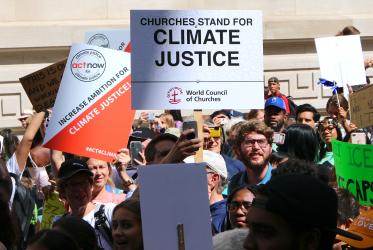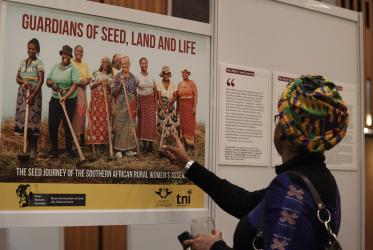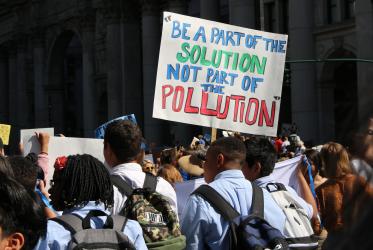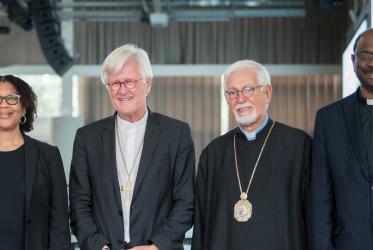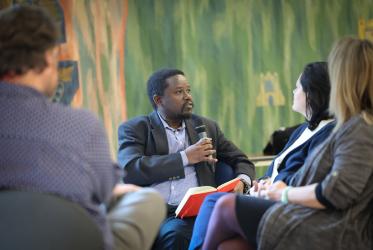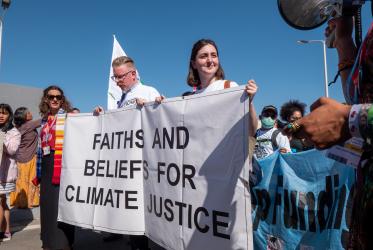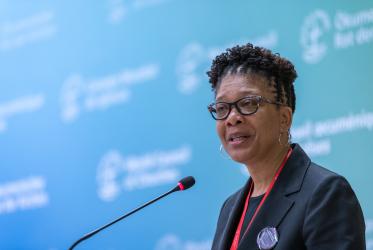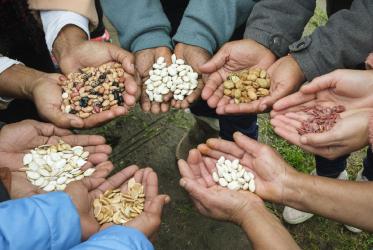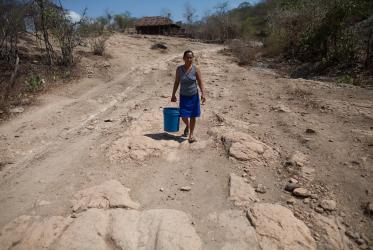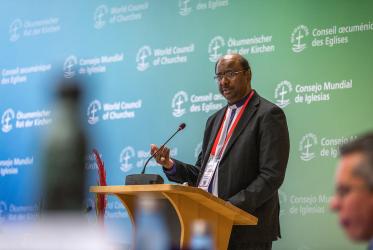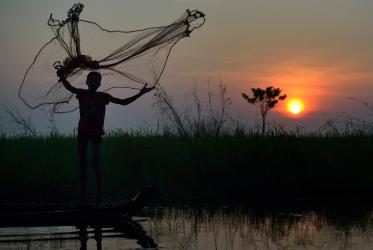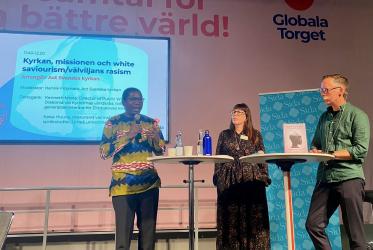Displaying 81 - 100 of 1913
06 November 2023
Ahead of Her Time
Pan-African Women of Faith and the Vision of Christian Unity, Mission, and Justice
01 November 2023
WCC guide raises awareness of obstetric fistula
26 October 2023
A Guide for Churches on the Prevention of Obstetric Fistula
26 October 2023
WCC leaders step up as Thursdays in Black ambassadors
26 October 2023
At peace conference, WCC focuses on overcoming racism
26 October 2023
WCC co-hosts webinar on climate emergency and faith responses
25 October 2023
World Council of Churches hosts "Guardians of seeds" exhibition
18 October 2023
Recommended Practices to Combat HIV-Related Stigma
A Guidebook for Local Faith Communities
05 October 2023
Faith Sector Implementation of the Global AIDS Strategy
05 October 2023
